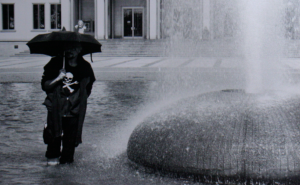Hugo Reinert
 Hugo Reinert is a senior researcher in the Department of Anthropology at the Estonian Institute of Humanities, Tallinn University. His main research interests lie in the fields of environmental anthropology and anthropological engagements with the nonhuman, broadly defined: among other things, he has worked on indigenous reindeer pastoralism, climate change policy and environmental volunteering. Most recently, he conducted a multi-sited study of conservation efforts for a highly endangered goose species that migrates across most of the Eurasian landmass. Luckily, his department tolerates unconventional office hours.
Hugo Reinert is a senior researcher in the Department of Anthropology at the Estonian Institute of Humanities, Tallinn University. His main research interests lie in the fields of environmental anthropology and anthropological engagements with the nonhuman, broadly defined: among other things, he has worked on indigenous reindeer pastoralism, climate change policy and environmental volunteering. Most recently, he conducted a multi-sited study of conservation efforts for a highly endangered goose species that migrates across most of the Eurasian landmass. Luckily, his department tolerates unconventional office hours.
It was working on this latter project that brought home for him the affective complexity of extinction processes — not only as scientific phenomena, or as objects of ethnographic interest, but as lived, personal experience: inalienable, ultimately, from the human (and his own) condition of embodiment on a finite and increasingly precarious planet. He is still working through the implications of this, trying to figure out how planetary concerns (and processes) articulate both with ethnographic scale and with the ethical commitments of his own discipline.
At the moment, his principal project explores the emergence of “sacrifice zones” along the Arctic resource frontier, focusing particularly on the establishment of extractive mining sites in indigenous areas of northern Scandinavia. The project develops an open-ended ethnographic engagement with the complex sacrificial logics that make such large-scale destructive interventions possible, realistic and (to some) necessary — exploring concepts of value, damage and obligation as they articulate across sites, scales and generations.